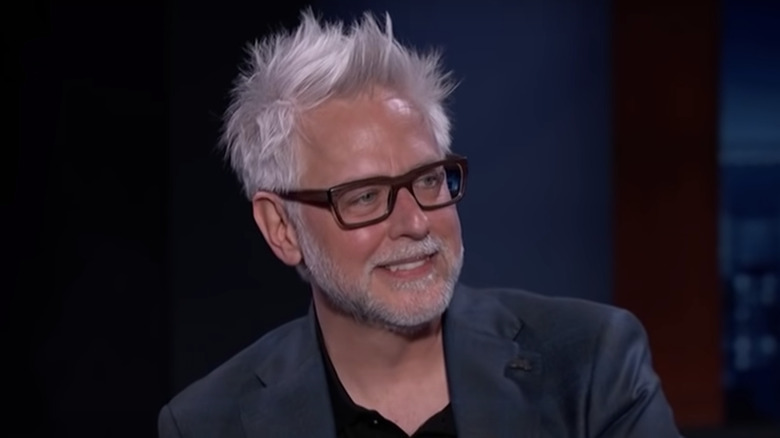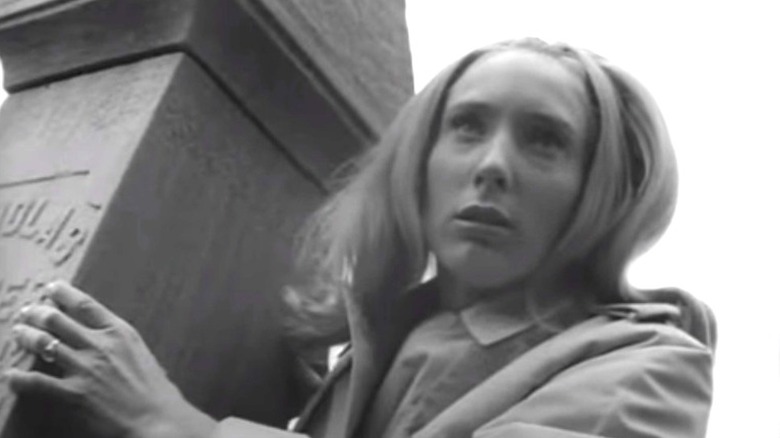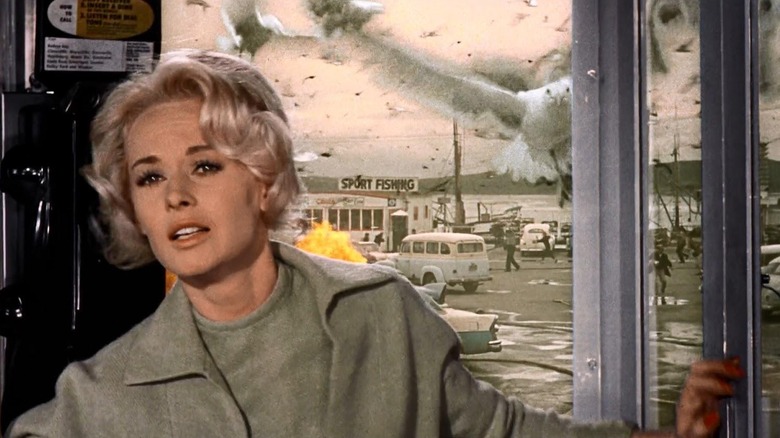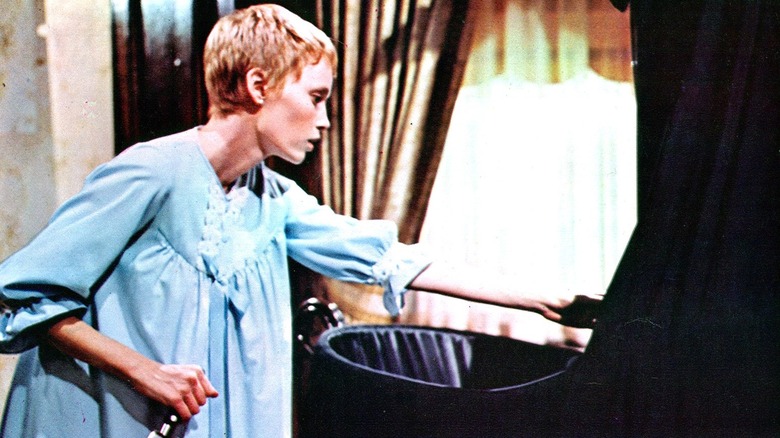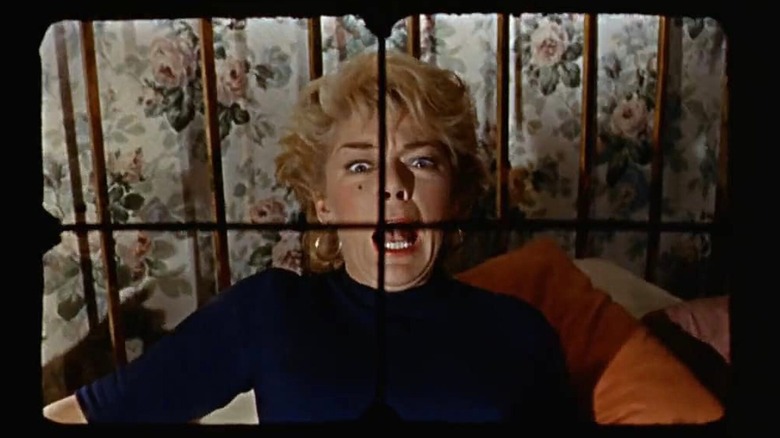James Gunn Thinks These 60s Horror Films Are Must-See
If you're a fan of genre films, chances are you're a fan of James Gunn. All directors love movies (we hope), but James Gunn really, really loves movies. The best part of it all? He loves movies just as weird and adventurous as he is. Long before he was directing powerhouse superhero features ("The Suicide Squad," "Peacemaker," and "Guardians of the Galaxy"), before he was making killer cult hits ("Super" and "Slither"), and even before he was penning beloved favorites like "Scooby-Doo" and the 2004 remake of "Dawn of the Dead," Gunn was a die-hard genre geek working for Troma Entertainment. Let's cut to the chase — James Gunn f****** rules! And every time he succeeds, he gives hope to horror dorks everywhere that we, too, can make our dreams come true.
Gunn is notorious for giving out movie recommendations online, and I have to say, he has pretty impeccable taste. The man clearly loves a combination of indisputable classics and downright schlock. Gunn is constantly providing free film education for us all through his recommendations and frequently focuses on underseen gems. Last March, Gunn provided a Twitter thread featuring some of his favorite movies from the 1960s to the 2000s, and every last one of them is a must-see. His picks for the 1960s were my personal favorites and are all acknowledged horror classics, loved by genre fans everywhere. Let's go to film school, y'all.
Night of the Living Dead
James Gunn loves the work of George A. Romero, even going so far as to choose his vampire film "Martin" as one of his favorite horror films of the 1970s. When it comes to the 60s, however, Gunn went with the zombie film that started it all — "Night of the Living Dead." Few films exist that can be described as perfect, but "Night of the Living Dead" is absolutely one of them. Romero invented the modern zombie film as we know it, and the film has been endlessly analyzed for over 50 years. Horror movies have always been used to draw parallels to the increasing anxieties of society, but Romero's masterpiece was so well-executed that it immediately motivated viewers to question what the director was really trying to say with his depiction of a zombie apocalypse. Gunn would go on to write the script for the remake of Romero's "Dawn of the Dead," which must have been an absolute dream opportunity for someone who loves the late Pittsburgh horror master's work so deeply.
The Birds
In an extremely bold move, Gunn's choice from Alfred Hitchcock's five films of the 1960s was not "Psycho" but the animals-run-amok classic "The Birds." Made at the peak of Hitchcock's career, "The Birds" feels like the cumulation of an entire life's work. "The Birds" effortlessly weaves the obvious B-movie schlock of birds terrorizing society with the high-class sensibilities of an arthouse film. Every frame, no matter how absurd the scenario, is treated as a work of art. It's also ruthlessly terrifying and completely changed the way we interact with birds in real life. How many times have you seen an unusually large gathering of crows on a wire and said out loud, "Wow! It looks just like 'The Birds' out here"? Hollywood has been trying to remake "The Birds" for the better part of a decade but has yet to make it happen, which is a good thing considering how perfect the film was the first go around. There's no need to remake yet another Hitchcock classic.
Rosemary's Baby
Let's get the elephant in the room out of the way real quick — Roman Polanski is a problematic human being. However, before Polanski became an admitted sex offender, he made some groundbreaking horror films that completely reshaped the genre — none more so than "Rosemary's Baby."
On the surface, "Rosemary's Baby" is a horror story about a woman who unknowingly carries the spawn of Satan, but the true terror lies in the way Rosemary Woodhouse (Mia Farrow) is treated throughout the film. She's gaslighted, lied to, manipulated, and relegated to little more than a womb. It's mortifying to watch, it's painfully relatable, and it perfectly encapsulates the everyday horror women often face through the lens of the supernatural.
The film, based on Ira Levin's novel of the same name, was written in the wake of second-wave feminism and is, unfortunately, still as relevant today as it was over 50 years ago. Gunn knows that there's power in the exploration of trauma as a metaphor, and something as seemingly silly as Peacemaker liking hair-metal as a way to escape the toxic patriarchal hold of his father is rooted in the impact of "Rosemary's Baby."
Peeping Tom
The true underdog of Gunn's recommendations is also the one that certifies that he's the real deal when it comes to his taste in movies.
Panned by critics upon its release in 1960, the British psychological thriller "Peeping Tom," directed by Michael Powell, is now regarded as a masterpiece and a primogenitor of the slasher film. For the uninitiated, "Peeping Tom" is about a serial killer who targets women and carries around a portable camera to film their dying moments. The use of the camera forces the audience to see through the eyes of a killer, looking at unsuspecting victims in an act of voyeurism. We are forced to see the world through the eyes of a psychopath and in turn, bear witness to the mind of a murderer.
Gunn loves to depict his villains with the same intimacy as his heroes — which is why even his superhero fare feels as fully realized and three-dimensional as his independent features. "Peeping Tom" is still criminally underseen by the general public, but hopefully, the Gunn seal of approval will inspire others to seek it out and get thoroughly creeped out in the process.
